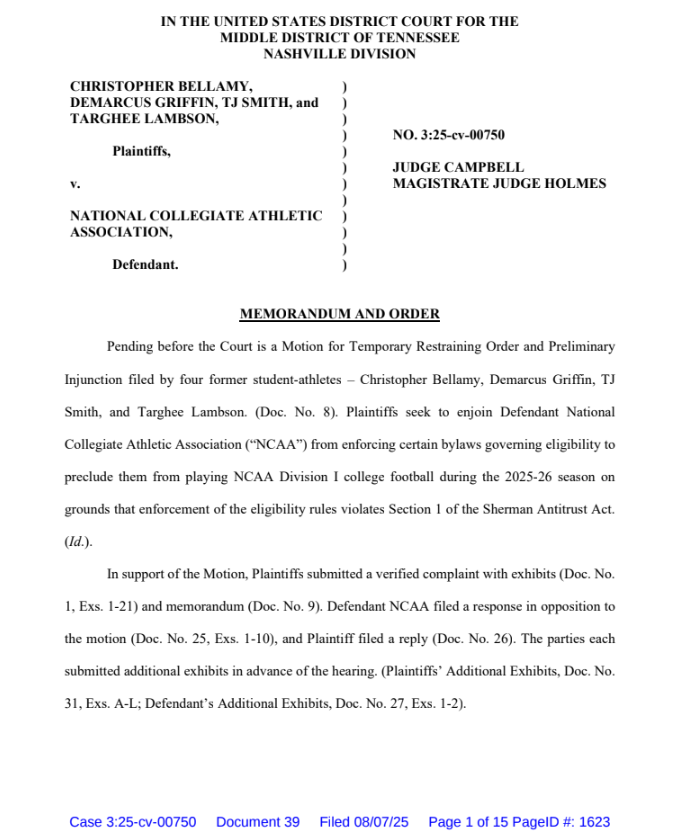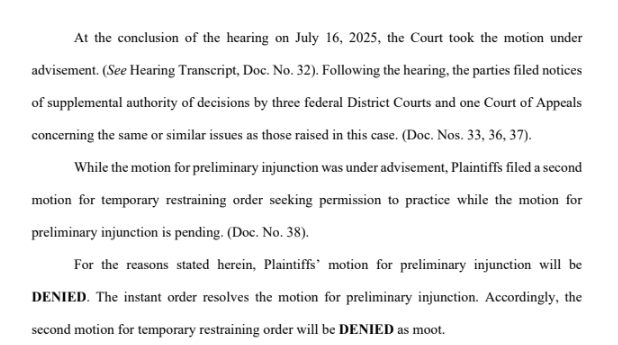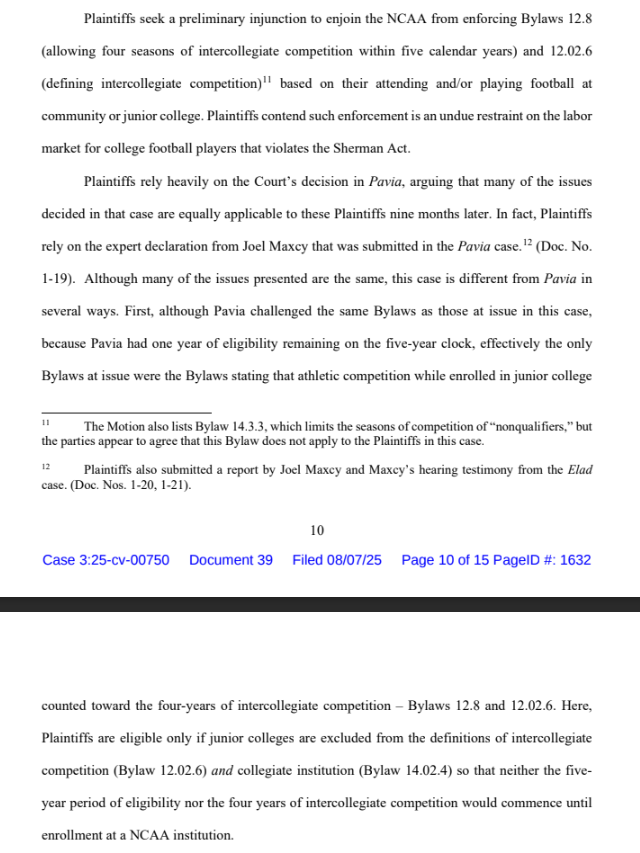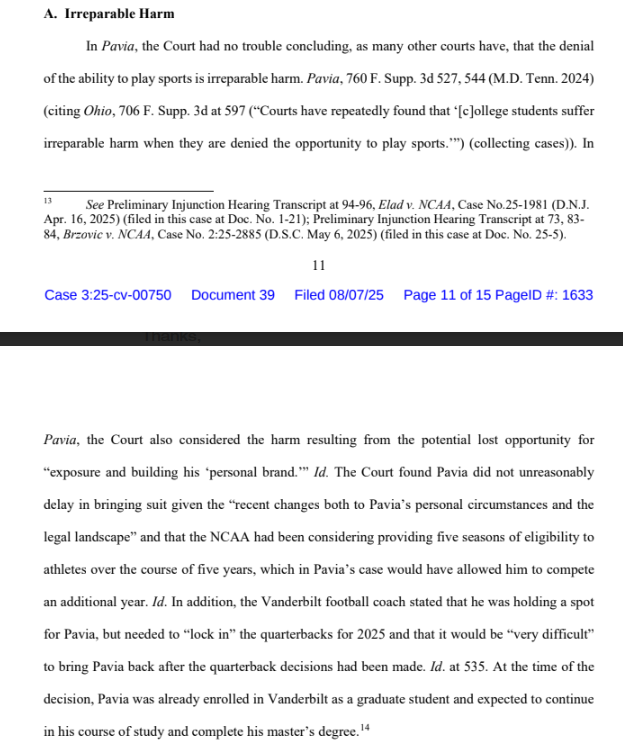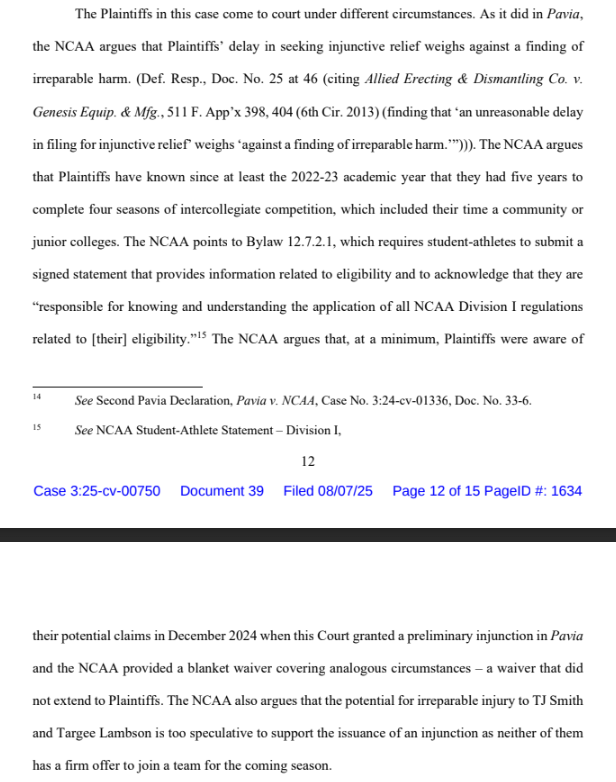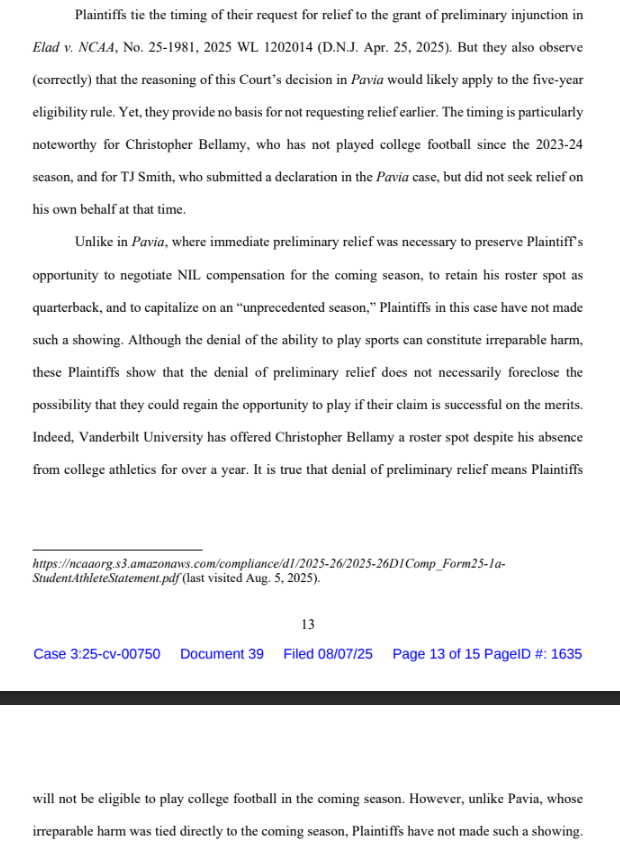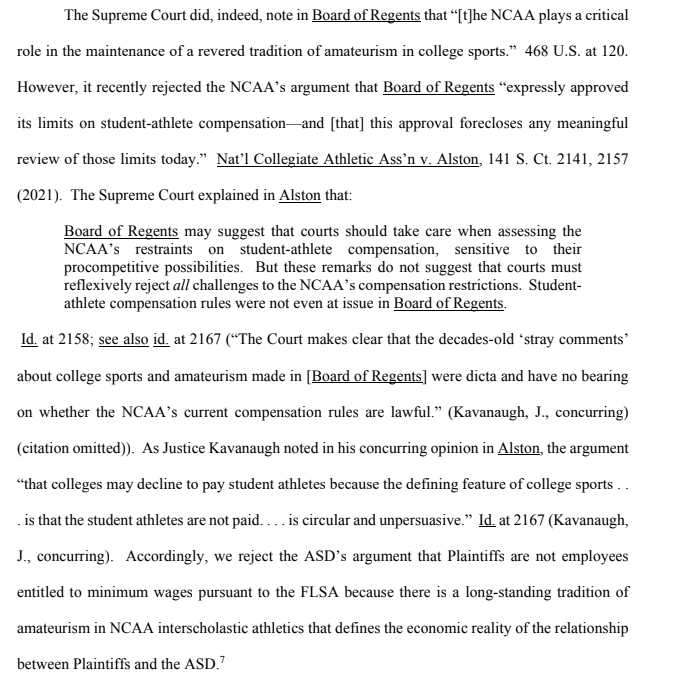Vanderbilt quarterback Diego Pavia's motion for a preliminary injunction that would allow him to play in 2025 has been GRANTED. 
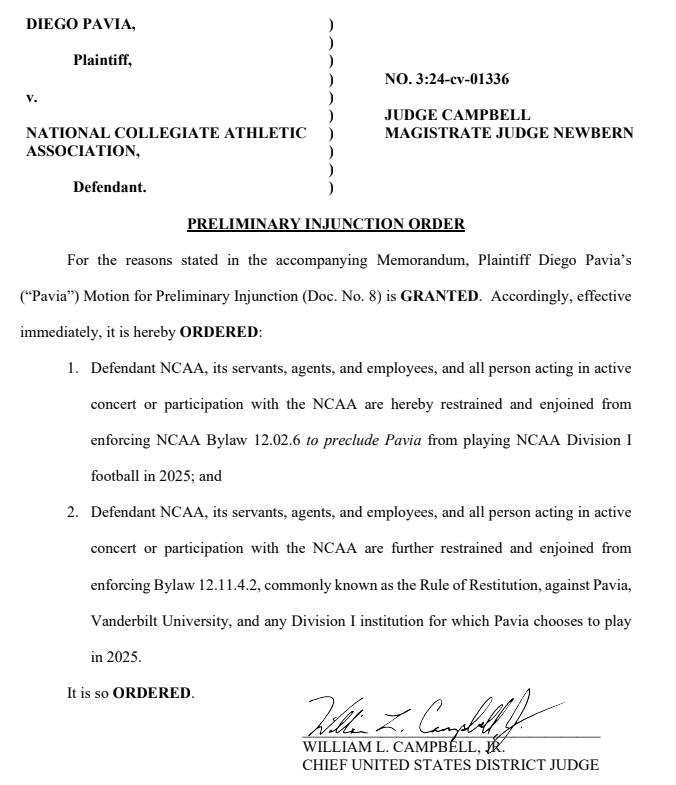
Here's the memorandum opinion. Thread to come as I read through it. drive.google.com/file/d/1i87Vl0…
So as one might have guessed, the opinions in the Ohio (transfer portal) and Tennessee (pre-enrollment NIL negotiations) are going to loom large as important precedent here. 



A bit of inside baseball on this one, but another court finds that the Sixth Circuit's formerly tentpole opinion in Bassett v. NCAA for antitrust discussion of NCAA compensation rules just isn't relevant anymore. 



The big thing here was always going to be whether the NCAA could offer procompetitive justifications for the rule. The court is sayingthey could not, as there's no reason why former JUCO players are restricted when there are plenty of other ways a player's clock can be delayed. 

The court also dismisses the NCAA's justification that they don't want to "crowd[] out" younger athletes, saying that transfers are not restricted in the same way (and that the market should decide). 

Finally, the court also doesn't buy that the JUCO rule is needed to make sure athletes continue progress towards degrees, saying that various other rules -- including the transfer rule -- have been changed without such consideration. 



And there's the Ohio precedent looming large -- the ability for athletes to earn NIL money from exposure as an athlete is an important change in the calculus of determining whether these rules violate antitrust law. 

My initial impression: the injunction is limited to Pavia (because that's all he asked for), but the court leaves things wide open for other athletes and similar challenges. Almost none of the legal analysis is tailored towards Pavia specifically. It's centered around the NCAA.
• • •
Missing some Tweet in this thread? You can try to
force a refresh





